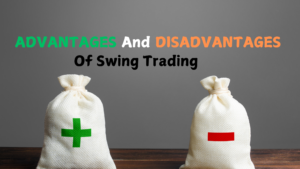In the complicated world of finance, Islamic finance and quantitative trading are two different ways of looking at things.
Each has its own set of rules and ways of doing things. Quantitative finance tries to understand and predict how markets will behave so that people can make better investment decisions. It does this by using mathematical models and a lot of data analysis.
This field uses methods like statistical analysis, algorithmic trading, and derivative pricing to get the best returns and the least amount of risk.
Quant finance is a field that combines finance, programming, and mathematics. It is becoming more and more important in today’s fast-paced and complicated financial markets.
Quantitative finance covers a wide range of jobs in the financial markets. These include Quantitative Researchers and Strategists, Quantitative Traders and Portfolio Managers, Quantitative Developers, Financial Engineers, Financial Data Scientists, Quantitative Risk professionals, Derivative Quants, and Quantitative Actuaries. There are jobs in both buy-side and sell-side firms.
As you can see, these different roles show how flexible quantitative finance skills are. They can be used in both traditional finance and Islamic finance, where following Islamic rules (called “halal”) is very important.
On the other end of the spectrum, Islamic finance follows a different set of rules that are based on moral principles that come from Shariah, which is Islam’s legal system. In contrast to traditional finance, Islamic finance does not allow investments in businesses that are haram, or against Islamic law, interest (riba), or too much uncertainty (gharar). Instead, it stresses sharing profits and losses, sharing risks, and investing in a way that is good for society.
The point of this blog is to find out if skills learned in quantitative finance can be used effectively in the Islamic finance system.
As the world’s financial markets change and become more linked, the chance for skills and information to be shared between these two areas opens up interesting possibilities.
We will talk about the problems and chances that come up when you try to use quantitative finance methods along with the moral rules of Islamic finance.
Definition and Examples of Quantitative Research Methods
Quantitative researchers use computer, statistical, and mathematical methods to study financial markets and assets. The aims of this methodological approach are to find patterns, test hypotheses, and predict market trends. The following methods are often used:
- Statistical Analysis: This is the study of past data to find patterns, average returns, and changes in value.
- Machine Learning: Using algorithms that can learn from data and make predictions is what machine learning is all about. After that, these algorithms can change their plans based on new information.
- Backtesting: “Backtesting” is the process of predicting how well a trading strategy might work in the future by modeling its past performance using past data.
Quantitative research is used in real life in a number of ways, such as pattern recognition algorithmic trading, regression analysis to predict stock prices, and mean-variance analysis to make portfolios more efficient.
Overview of How Quantitative Trading Works
When you use quantitative analysis to buy and sell things, this is called quantitative trading. Traders can make trades automatically when certain market conditions are met by creating algorithms and models. The main idea is to make decisions based on methods and models that can quickly process huge amounts of data and get rid of making decisions based on feelings. In this group are both short-term, millisecond-based trading and longer-term, more strategic trading.
Comparison of These Methods with the Principles of Islamic Finance
Quantitative finance is based on numbers and tries to get the best returns by measuring and lowering risk. Islamic finance, on the other hand, follows rules that try to keep risks low and focus on moral and social effects. How do they stack up?
- Interest (Riba): Islamic finance doesn’t allow making money from money, like interest does. Interest is a common part of many quantitative trading strategies, especially those that use derivatives and fixed income securities.
- Speculation (Gharar): A lot of quantitative trading strategies use guesswork that might not fit with Islamic finance, which stays away from too much doubt and guesswork.
- Ethical Investment: Islamic finance requires investments in things that are seen as good for society and behave responsibly. Since quantitative methods are neutral, they don’t usually look at the type of business when deciding where to invest unless they are programmed to.
But there is a growing desire to come up with quantitative strategies that are in line with Islamic principles. This can include making models that weed out investments that don’t follow the rules or that include the risk-sharing features of Islamic financial products. You can also use quantitative tools to make Islamic financial products more open and effective, which will make them more competitive and appealing to a wider audience.
It is possible to combine quantitative finance skills with Islamic finance principles. This can also help create new financial products that meet the moral standards of Islamic investors, which will increase market reach and help more people get access to money.
Is Quant Project Aligned with Islamic Values?
Examination of Quantitative Projects in Finance
In finance, quantitative projects usually involve making models that use huge amounts of data to guess how markets will act, make portfolios better, and automate trading. These projects use math and statistics to come up with strategies that can beat the market or lower the risk of an investment. Risk management, pricing derivatives, and algorithmic trading are all common uses.
Discussion on Whether These Projects Align with Islamic Ethical and Financial Principles
To find out if quantitative projects are in line with Islamic values, one must check to see if they are “considered halal,” which means they follow the rules of Islamic finance:
- Prohibition of Riba (Interest): In Islamic finance, interest of any kind is not allowed. Quantitative finance uses a lot of complex derivatives and instruments that bear interest, which may not be legal.
- Avoidance of Gharar (Uncertainty): Islamic finance stays away from too much uncertainty and ambiguity. This principle might not work with some quantitative strategies that use a lot of speculation or complicated derivatives.
- Ethical Investment: Money should only be put into things that don’t go against Islamic ethics. For example, it shouldn’t be put into industries that deal with alcohol, gambling, or pork. To be in line with Islamic principles, quantitative models need to be changed so that these kinds of investments are ruled out.
Investment banks and hedge funds that do a lot of quantitative trading need to make sure that their activities are in line with Islamic finance rules in order for them to be considered halal. Another important area where quantitative finance methods are used is investment banking.
For these methods to be considered halal, they must be in line with Islamic finance principles. This means using mathematical methods for “market making” to keep the market liquid while following Shariah law and staying away from financial instruments and transactions that aren’t allowed.
So, quantitative methods are neutral tools in and of themselves, but how well they fit with Islamic values depends a lot on how they are used. They can be in line with Islamic values if the rules and morals of Islamic finance are taken into account when planning quantitative projects.
This includes using numbers to make sure you’re following Shariah law and staying away from financial instruments and transactions that aren’t allowed.
Is Staking Quant Halal?
Explanation of What Staking in Cryptocurrency Involves
Cryptocurrency users “stake” their coins, which means they lock or hold their coins in a cryptocurrency wallet to help the blockchain network run. Basically, you promise to use your crypto assets to support a network and make sure transactions are real. People who take part are usually rewarded with more cryptocurrency, which is similar to how interest works in a bank.
Analysis of the Permissibility of Staking Under Islamic Law
It’s not always clear whether or not staking is legal under Islamic law:
- Interest-Like Rewards: The rewards for staking could be seen as like interest, which is against Islam’s rules. It might be okay, though, if the reward is seen as a share of the profits or a gift for helping the network.
- Speculation and Uncertainty: Cryptocurrencies are very volatile, and staking can be risky because the value of rewards can change a lot. This could involve gharar, which is something that Islamic finance tries to stay away from.
- Nature of the Business: The business activities that happen on the blockchain network must also be in line with Islamic principles. If the network supports businesses that don’t follow the rules, then you wouldn’t be able to stake those cryptocurrencies.
Because of these things, staking might be allowed in Islamic finance, but it would depend a lot on how the rewards are set up and what kinds of activities are supported by the blockchain. These issues are still being debated and talked about by Islamic scholars and financial experts. This shows how our understanding of new financial technologies in light of traditional Islamic law is changing.
Making Things Happen
Strategies for Implementing Quantitative Finance Skills in Islamic Finance Settings
There are a few things that can be done to effectively transfer quantitative finance skills to Islamic finance:
- Customization of Algorithms: Change existing quantitative algorithms to weed out investments that don’t follow Shariah law. This means staying away from stocks in industries that aren’t allowed and making sure that the financial ratios, like the debt-to-market cap ratio, follow Islamic rules.
- Development of Risk-Sharing Products: Come up with new financial products that follow the rules of risk-sharing instead of risk-transfer, which is what most conventional financial products do. This could mean making structured products or derivatives that are in line with Shariah law. One important way to bring quantitative finance in line with Islamic finance is to focus on risk-sharing products. This method is different from traditional finance, which relies on risk-transfer products. This approach highlights the unique value of Islamic finance in promoting stable finances and moral investment.
- Enhanced Liquidity Management: To improve liquidity management that is in line with Islamic finance principles, use quantitative models. This will help Islamic banks manage their liquidity without using instruments that pay interest.
Discussion on Potential Adjustments or Innovations Needed
To close the gap between traditional quantitative finance and Islamic finance, a number of changes and new ideas are needed:
- Integration of Ethical Filters: Make trading algorithms smarter so they can find and weed out non-Halal sources of income, making sure all investments are in line with Shariah.
- Quantitative Zakat Calculation Models: Create models that automatically figure out Zakat (a type of charity that Muslims see as a religious duty or tax) on investment returns. This will make it easier for Muslim investors to fulfill their religious duties.
- Automation of Shariah Audits: To make sure that all trading activities and financial products are always in line with Shariah law, use machine learning to automate the process of Shariah audits.Quantitative finance techniques can also be used in investment banking as long as they are changed to be in line with Shariah law. This gives professionals who want to work in consulting or investment banking while following Islamic principles a way to do so.
How Does Quantitative Trading Work in Practice at IMC?
Case Study or Example of Quantitative Trading at a Specific Institution Like IMC
IMC is a global market maker that uses computer-based trading strategies to make trades go smoothly and provide liquidity. This is usually how they do things:
- High-Frequency Trading (HFT): High-Frequency Trading (HFT) is the use of complex mathematical models to make quick trading decisions in many markets using real-time data. To make these complex mathematical models used in high-frequency trading and statistical arbitrage, you need to be very good at programming languages.
- Statistical Arbitrage: In statistical arbitrage, you use complex statistical models to guess how prices will move by taking advantage of inefficiencies in the market.
Analysis of the Compatibility of These Practices with Islamic Finance
There are a few things to think about when figuring out if IMC’s methods could work with Islamic finance:
- Shariah Compliance: Securities that don’t follow Islamic rules would have to be left out by the algorithms. This could make it harder for IMC to do some of the things it normally does, like trading derivatives for fun.
- Speculative Practices: Lots of high-frequency trading strategies might be seen as too risky for Islamic finance because they involve a lot of uncertainty and taking risks that aren’t allowed.
- Ethical Considerations: IMC would have to make sure that its trading is morally in line with Islamic values, which stress fairness, honesty, and the well-being of the community.
Overall, the main ideas of quantitative trading can be used in Islamic finance, but big changes need to be made to make sure they are completely legal under Shariah law. These changes not only follow the rules of ethics, but they also reach a growing group of people who use Islamic finance and want technologically advanced and legal financial services.
How Do You Get a Job as a Quantitative Trader or Researcher?
Steps to Enter the Field of Quantitative Trading and Research
- Educational Background: Obtain a degree in fields like finance, mathematics, computer science, or engineering. Advanced degrees such as a Master’s or PhD in quantitative finance or related fields are highly regarded. This foundational knowledge is crucial for navigating the diverse career path options in quantitative finance, including roles such as Quantitative Researchers & Strategists, Quantitative Traders & Portfolio Managers, Quantitative Developers, Financial Engineers, Financial Data Scientists, Quantitative Risk professionals, Derivative Quants, Quantitative Actuaries, and opportunities in both buy-side and sell-side firms. Understanding the ‘career path’ options is essential, highlighting the variety of roles and opportunities in both conventional and Islamic finance settings.
- Skill Development: Gain proficiency in programming languages commonly used in trading such as Python, C++, or R. Mastering a programming language is critical for developing smart contracts on any Distributed Ledger Technology (DLT), even those that do not natively support smart contracts. Develop a strong understanding of mathematical and statistical analysis.
- Internships and Experience: To get real-world experience, look for internships in financial institutions. It is very helpful to have experience with data analysis, machine learning, and making algorithms.
- Certifications: You might want to get a Chartered Financial Analyst (CFA) certification or take courses in quantitative finance and algorithmic trading.
- Networking: To meet other professionals in your field, go to conferences, seminars, and workshops in your field. Networking can give you information and chances that you wouldn’t get through other job search methods.
Skills and Qualifications Needed, with a Focus on the Islamic Finance Sector
- Knowledge of Shariah Law: It is very important to understand the rules and requirements of Islamic finance. It can be helpful to take classes or get certified in Islamic finance.
- Ethical Finance Training: Learning about ethical finance and ESG (Environmental, Social, and Governance) principles can also be helpful, as they are very similar to Islamic ways of handling money.
- Cultural Competence: Being aware of how things like community values and traditional business practices affect Islamic finance.
QNT Token Screening for Shariah Compliance
Overview of QNT Token
What is the Quant Network’s utility token? QNT is used to access different services within the network. Its main purpose is to pay for the platform’s services, like transaction fees, licenses, and developer tools.
Process and Criteria for Screening Cryptocurrencies for Compliance with Shariah Law
- Nature of Business: Make sure that the cryptocurrency-related business activities don’t involve illegal things like gambling, drinking, or selling pork.
- Risk and Speculation: Check the amount of risk and speculation in how the token works and how the market acts to make sure they don’t count as Gharar.
- Interest (Riba): Make sure that the token doesn’t give you any kind of interest-based returns, either directly or indirectly.
- Transparency and Compliance: Check the blockchain’s governance, transaction transparency, and compliance mechanisms to make sure they meet the Islamic finance’s moral standards.
What Does The Muslim Crypto Community Think of QNT?
Insights from the Muslim Crypto Community about QNT
Because QNT follows Islamic rules, the Muslim crypto community may have different thoughts on it. Some members might like the technology and how it can be used if they follow moral standards, but others might be wary because cryptocurrencies are volatile and based on speculation.
Discussion on the Acceptance and Usage of QNT Among Muslim Investors
Muslim investors would probably be open to QNT if it was approved by well-known Islamic financial authorities and if people thought it was useful and in line with Shariah law. To make QNT acceptable, people need to keep learning about it and be clear about how it meets Islamic financial standards.
Conclusion
Recap of the Main Points
- Quantitative finance and Islamic finance can integrate, with necessary adjustments to ensure Shariah compliance.
- Roles in quantitative finance require both technical and sector-specific knowledge, particularly in understanding Islamic principles.
- Screening for Shariah compliance in cryptocurrencies like QNT is crucial for acceptance in the Muslim financial community.
Final Thoughts on the Integration of Quantitative Finance Skills into the Islamic Finance System
Using quantitative finance in Islamic finance could be very helpful, but it needs a lot of new ideas and careful thought about what is right and wrong. This integration not only makes Islamic finance more useful, but it also makes it more competitive and appealing on the world market.
Encouragement for Further Research and Discussion in This Field
To find deeper integrations and new solutions that follow the moral limits of Islamic finance while using cutting edge quantitative methods, we need to keep talking and researching. People with a stake in both sectors are encouraged to work together to create legal, effective, and new financial solutions.




